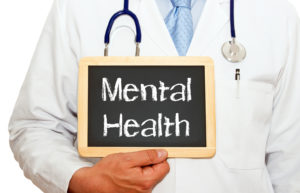Addiction and mental health issues are two of the most challenging aspects of life that can lead to severe and long-term effects on an individual’s life. While addiction and mental illness can cause severe damage to physical and mental health, they can also have a catastrophic impact on a person’s day-to-day life. The combination of these issues can create a downward spiral of events leading to complete upheaval of a person’s life.
When addiction enters the picture, it further complicates a person’s mental and emotional condition. As addiction progresses, a person’s ability to control the behavior is impaired. Addiction has a negative impact on a person’s job and relationships, as well as creating financial troubles. The combination of a mental health disorder and addiction can lead to social isolation, as well as to homelessness and prison time.
Drug and alcohol can also affect physical health, leading to organ damage due to addiction. Long-term drug and alcohol use can lead to physical and mental damage, including permanent brain damage. Addiction and mental illness can also lead to the development of psychological and neurological disorders, such as memory loss and personality fluctuations.
The devastating impact of addiction and mental illness is something that can take years to repair. Despite the long-term effects, recovery from addiction and mental health issues is possible. The process starts with a doctor’s appointment to assess the severity of the issues. This appointment will help determine the appropriateness of medication and therapy to help individuals heal. A combination of therapy, medications, support groups, and lifestyle changes can help individuals overcome addiction and mental health issues.
Individuals with addiction and mental health issues need support and understanding. Recovery involves facing difficult emotions and making the hard choices needed to get better. With determination and support from family and friends, individuals can make great strides towards a healthy and happy life.
Addiction and mental health issues are devastating and can have a permanent impact on a person’s life. Learning to understand and manage the challenges of addiction and mental health is critical to creating a fulfilling and stable life. With the proper help, individuals can make progress in their journey of healing and ultimately creating a better life for themselves.









 When it comes to treating our dual disorder (mental health diagnosis and substance use disorder) a common concern is which do you treat first? The answer to this lies in the question, what are your concerns at the time of seeking out services? Sometimes it is an easy answer, your mental health may be stable, but your use is causing the chaos. Or you may be suffering with untreated mental health symptoms and that puts your substance abuse on the back burner. The question shouldn’t be which is primary, but rather where are my needs today?
When it comes to treating our dual disorder (mental health diagnosis and substance use disorder) a common concern is which do you treat first? The answer to this lies in the question, what are your concerns at the time of seeking out services? Sometimes it is an easy answer, your mental health may be stable, but your use is causing the chaos. Or you may be suffering with untreated mental health symptoms and that puts your substance abuse on the back burner. The question shouldn’t be which is primary, but rather where are my needs today?